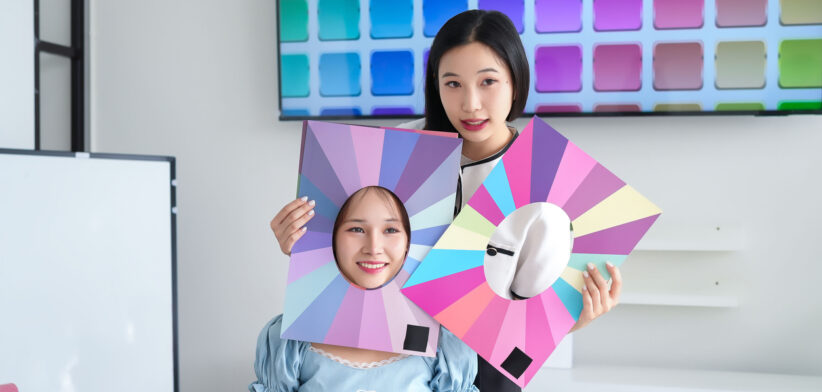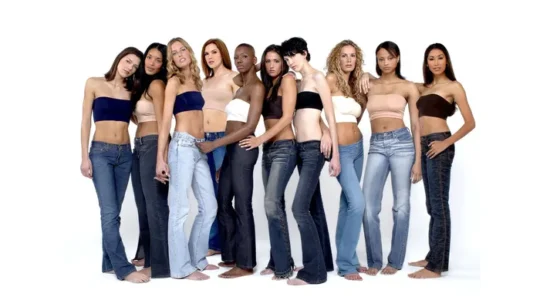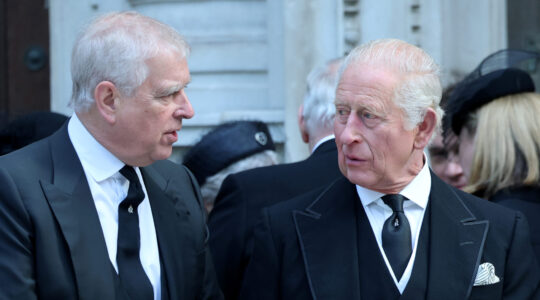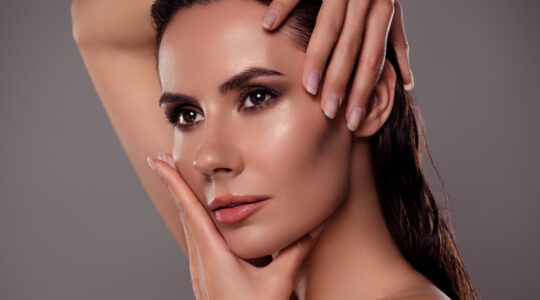By Susan Schwartz
Shopping for clothes once seemed to be such a simple thing. You’d be drawn in by certain colours and styles, and things that brought you joy found their way to your cupboard.
Now a whole slew of colour “experts” have entered the mix; and unless a coveted item is available in “your” colour – that effortless beige trench-coat, once considered a timeless wardrobe staple – is not allowed to come home with you.
One false move and you could end up looking orange – like someone had a fight with the fake tan bottle; or worse – sallow and pasty sans rigor mortis.
The theory is that colour analysis can determine your optimal colour palette based on your skin tone, hair colour, and eye colour. People are categorised into four main seasons – Winter, Spring, Summer and Autumn – and their subsequent four sub-seasons.
It’s grounded in colour science which says wearing colours that suit your natural undertones can make you look more vibrant and even younger.
An analysis involves examining whether your overall colouring is warm or cool. The colour of your veins are also considered, along with natural hair and eye colour.
If you have an in-person consultation, the analyst will test whether gold or silver suits you best, and which white is yours. Coloured fabric is placed near your face to find out which hues enhance or dull your features – considered to be the most accurate method.
Which brings us to why colour analysis has resurfaced after previously being dismissed as an outmoded trend from the 1980s and 90s.
Number one is choice. There is so much choice out there, it can make it easier to narrow things down, especially if you don’t know what you’re doing and don’t want to waste money on expensive experiments.
It can be useful for finding flattering colours and for building a cohesive wardrobe. A friend of mine who recently had her colours “done” said it had helped to build her confidence and feel more “put together.”
However, it’s not a foolproof method and can often be subjective.
Which is why I’ve always been slightly hesitant to accept being hustled into just one season. I love choice. Give it to me! Plus, I’m not a good candidate for colour analysis because I’m Eurasian, have neutral undertones, and can work across most seasons.
Even ChatGpt is confused – when I asked it what my season was it came up with three different ones that are all opposite to one another.
Like me, not everyone fits neatly into one season or their expanded sub-seasons.
The system was originally designed with Caucasian individuals in mind, making it difficult to include ethnic differences.
Plus, the results of your analysis can vary, especially depending on the lighting, the analyst’s experience, and whether you’ve dyed your hair or what you’re wearing at the time. And if done online, it can be even more fraught.
And lastly, you may look “good” in a certain colour, but hate how it makes you feel, or what it represents to you.
Personal style and what brings you joy matters more.
Colour Analysis Seasons:
SPRING FAMILY – Warm, Clear, or Light
True Spring (Warm Spring)
Undertone: Warm
Contrast: Medium
Hair: Golden blonde, strawberry blonde, warm light brown
Eyes: Clear green, light hazel, warm blue
Best colours: Warm, bright, and clear — coral, peach, golden yellow, turquoise
Light Spring
Undertone: Warm-neutral
Contrast: Low
Hair: Light golden blonde, light strawberry blonde
Eyes: Light blue, light green, soft hazel
Best colours: Light, warm pastels — melon, peach, mint, light aqua
Bright Spring (Clear Spring)
Undertone: Warm-neutral
Contrast: High
Hair: Golden brown, bright blonde
Eyes: Clear blue, green, topaz
Best colours: Bright, clear, and warm — tangerine, lime, bright aqua, poppy red
Warm Spring (aka True Spring, sometimes distinguished separately)
Undertone: Strongly warm
Contrast: Low to medium
Hair: Golden blonde, honey blonde, strawberry blonde, light auburn
Eyes: Clear blue, green, light hazel, topaz
Best colours: Bold, clear, very warm shades – coral, peach, salmon, warm yellow, ivory, aqua, light turquoise, melon, warm pinks
SUMMER FAMILY – Cool, Soft, or Light
True Summer (Cool Summer)
Undertone: Cool
Contrast: Low-medium
Hair: Ash blonde, soft brown
Eyes: Grey, soft blue, muted green
Best colours: Cool, soft, and light — rose, lavender, baby blue, cool taupe
Light Summer
Undertone: Cool-neutral
Contrast: Low
Hair: Light ash blonde, soft light brown
Eyes: Light grey-blue, green
Best colours: Light and cool — icy pink, periwinkle, light aqua, dove grey
Soft Summer
Undertone: Neutral-cool
Contrast: Low
Hair: Ash brown, soft brunette
Eyes: Greyed blue, muted green, soft brown
Best colours: Muted, cool, soft — dusty rose, sage, soft navy, muted mauve
Cool Summer (very close to True Summer)
Undertone: Strongly cool
Contrast: Soft
Hair: Ash blonde, ash brown, soft brown
Eyes: Grey, soft blue, soft green cool hazel – muted, rather than bright
Best colours: Coolest pastels and medium tones — icy lavender, steel blue, raspberry
AUTUMN FAMILY – Warm, Deep, or Soft
True Autumn (Warm Autumn)
Undertone: Warm
Contrast: Medium
Hair: Auburn, red, golden brown
Eyes: Warm hazel, green, golden brown
Best colours: Warm, rich, muted — pumpkin, olive, camel, rust
Soft Autumn
Undertone: Neutral-warm
Contrast: Low
Hair: Soft brown, muted red
Eyes: Soft hazel, green, muted brown
Best colours: Muted and earthy — soft moss, dusty peach, oat, warm grey
Deep Autumn
Undertone: Warm-neutral
Contrast: High
Hair: Dark brown, deep auburn
Eyes: Deep brown, dark green
Best colours: Deep, warm — espresso, deep olive, burnt orange, maroon
Warm Autumn (rarely split out, close to True Autumn)
Undertone: Very warm
Contrast: Medium to low
Hair: Red, auburn, golden brown, deep strawberry blonde
Eyes: Warm brown, green, hazel – often golden-flecked
Colours: Hottest autumn shades — bronze, ginger, saffron, goldenrod
WINTER FAMILY – Cool, Deep, or Bright
True Winter (Cool Winter)
Undertone: Cool
Contrast: High
Hair: Black, cool dark brown
Eyes: Icy blue, deep brown, black
Best colours: Cool, bold, and clear — black, white, cobalt, fuchsia, crimson
Bright Winter (Clear Winter)
Undertone: Cool-neutral
Contrast: High
Hair: Deep brown or black
Eyes: Bright blue, clear green, cool hazel
Best colours: Cool, high-saturation — icy pink, electric blue, true red, lemon yellow
Deep Winter
Undertone: Neutral-cool
Contrast: Very high
Hair: Very dark brown or black
Eyes: Dark brown, deep hazel
Best colours: Deep and intense — charcoal, burgundy, forest green, navy
Cool Winter (overlaps with True Winter)
Undertone: Very cool
Contrast: Strong
Hair: Black, dark brown, or cool ash tones
Eyes: Icy blue, deep brown, black – eyes may appear clear or sharply defined
Colours: The iciest and darkest shades — true black, icy silver, deep violet








